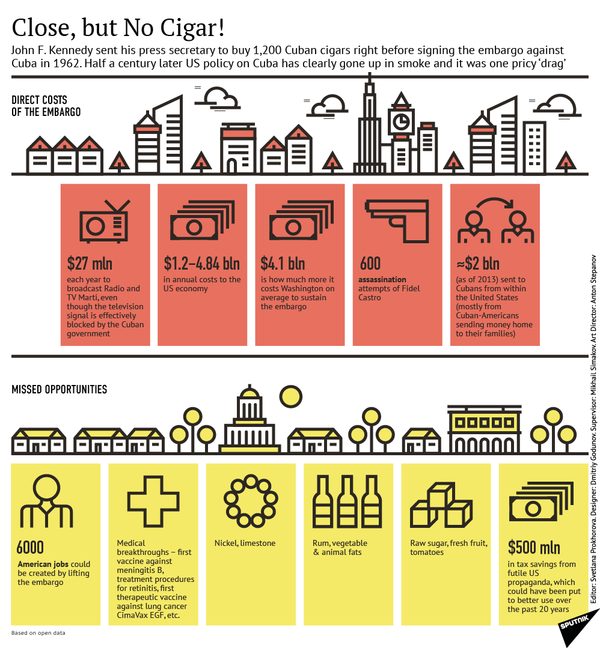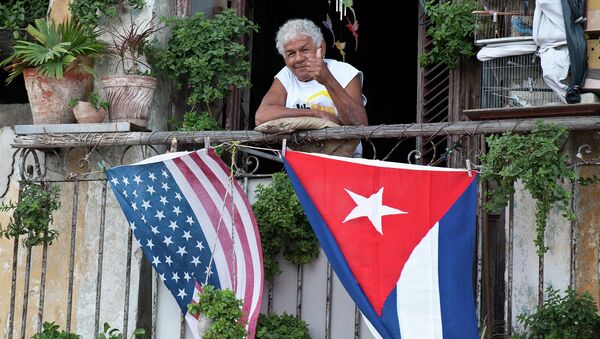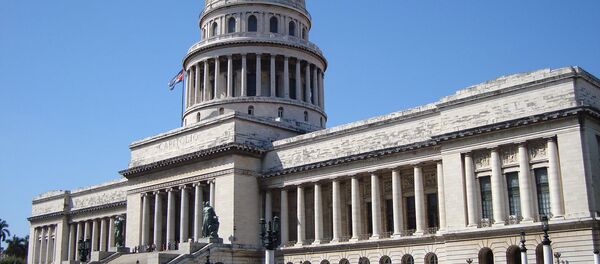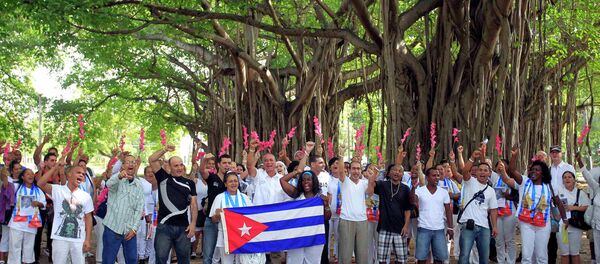The upcoming talks between the US and Cuba are expected to open a new chapter in bilateral relations, with an anticipated return to political normality, ending more than half-century of mutual hostility and mistrust. At least this is what the Obama administration has green-lit, having received multiple signs of Cuba’s eagerness for rapprochement.
High-ranking American and Cuban officials will participate in a Havana-hosted two-day event. Among the issues to be discussed are immigration and plans to reopen embassies and exchanging ambassadors, as reported by AFP. Cuban immigration has been the most acute issue in bilateral relations ever since the Communist uprising seized power in 1959, with countless Cuban refugees fleeing the Socialist paradise in boats and rafts for the southern US, chiefly Florida, spawning such famed moments of the Cubans’ nationwide drama like Mariel boatlift of 1980.
A recent visit of top Congress Democrats, commenced Saturday, is largely seen as a preparation measure for the upcoming talks. There is a huge commercial potential for Cuban-American cooperation, as Cuba is starved for tech and consumer products, while being a potentially attractive tourist destination for Americans, just like during the period of 1920s-1950s, when Havana had become home to multiple gambling and recreational facilities and Al Capone himself frequented the island.
"We are going this time to discuss our expectations, and the Cubans' expectations, for the normalization of relations," Sen. Patrick Leahy (D-VT) said on the National Public Radio. "We want to explore opportunities for greater cooperation, and to encourage Cuban officials to address issues of real concern to the American people and to their representatives in Congress."
The Obama administration has recently eased travel and trade restrictions with Cuba. Now any US company can offer tourist trips to Cuba, American businesses will also be allowed to export telephones, computers and tech to the island, along with some other directions of commercial activity like supplying resources to Cuban enterprises. Aviation and aerial services are one of the prospect areas of cooperation between Cuba and the US.
“American tourists are really demanding,” Maikel Gonzalez, a 34-year-old hotel receptionist in Havana, said as quoted by the Associated Press. “How do I explain to one that the taxi didn’t come because it doesn’t have tires or that there’s no water in the rooms?”
The ongoing rapprochement between Cuba and the US bears multiple economic and political benefits for both sides. Cuba will finally find its place among nations enjoying the free market and transparent borders, while the US will once and for all eliminate the threat coming from the annoying ‘unsinkable Soviet missile cruiser’ in its backyard pool that put the entire world on the brink of extinction back in 1962.





